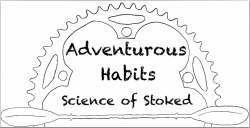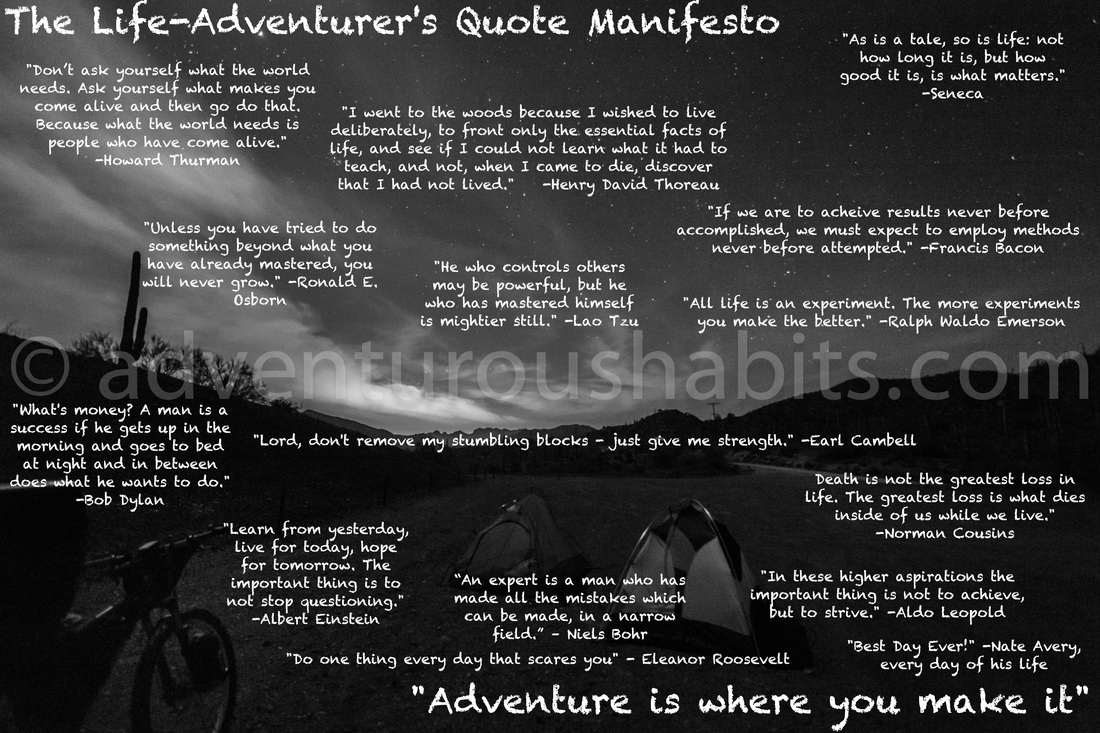Read time: 3 minutes
In his article 3 Time Management Tips That Will Improve Your Health and Productivity, James Clear poses the questions:
In his article 3 Time Management Tips That Will Improve Your Health and Productivity, James Clear poses the questions:
Time management can be tough. What is urgent in your life and what is important to your life are often very different things. This is especially true with your health, where the important issues almost never seem urgent even though your life ultimately hangs in the balance. Is there anything we can do? If we all have 24 hours in a day, how do we actually use them more effectively?
I highly suggest checking it out. One of the three tips is “Eliminate Half-Work at All Costs”. It is a topic that I agree with wholeheartedly and that is catching on lately (check out the research presented on ‘mind-wandering’ in this TEDx Talk), but I wanted to share two important exceptions to this rule today. Use them wisely!
#1: The Benefits of Daydreaming
“I thought of that while riding my bicycle” Albert Einstein is commonly quoted as saying about his Theory of Relativity.
Take that, people who argue that staying in the moment and not mind-wandering is always the most effective way to stay happy and productive!
Michael Gelb found a similar trend in his book How to Think Like Leonardo da Vinci. Most people came up with their best ideas in the shower, resting in bed, or walking in nature rather than when working.
The point here is that while letting your mind slip off to your email or what you are going to eat for dinner while on the phone with a loved one is a clear recipe for unhappiness or a lack of fulfillment, there are plenty of cases where daydreaming has delivered gems of productivity. As writer Fred Waitzkin describes it in his interview with Tim Ferriss:
#1: The Benefits of Daydreaming
“I thought of that while riding my bicycle” Albert Einstein is commonly quoted as saying about his Theory of Relativity.
Take that, people who argue that staying in the moment and not mind-wandering is always the most effective way to stay happy and productive!
Michael Gelb found a similar trend in his book How to Think Like Leonardo da Vinci. Most people came up with their best ideas in the shower, resting in bed, or walking in nature rather than when working.
The point here is that while letting your mind slip off to your email or what you are going to eat for dinner while on the phone with a loved one is a clear recipe for unhappiness or a lack of fulfillment, there are plenty of cases where daydreaming has delivered gems of productivity. As writer Fred Waitzkin describes it in his interview with Tim Ferriss:
“Then I would be riding on my bike or watching the game, and the answer would rise to me–this would happen surprisingly often. Although each time it was a little thrilling, this bolt from the blue connection with a shadowy hard working world that we donʼt know so much about.”
I plan to explore ‘that world that we don’t know so much about’ further through dream-hacking and brain training. Stay tuned for posts on these :)
#2: Half-Work’s Potential for Continuing a Good Habit
I have used half-work to my advantage in keeping up the habit of cooking all of my own meals. In my previous life, I felt like cooking was a waste of perfectly good time when I could be learning, having fun, or doing other stuff to disengage. Now, thanks to the myriad of podcasts out there, I listen to podcasts covering a range of topics, from health to business to science shows, while cooking. It allows me to feel as if cooking is not another chore, but instead that I am still disengaging during that time by doing what I enjoy – learning. In this respect, I am totally half-cooking and half-learning, but it allows me to stick to my habit and enjoy it much more. Furthermore, I get Waitzkin’s “bolts” almost exclusively while doing this.
It seems to me that there is something in our genes that allows us to mind-wander and daydream during times that are not life-or-death situations. Mark Sisson has talked about the importance of letting yourself daydream. I imagine that our ancestors, with far more time spent in fight-or-flight situations, did not have the ability to daydream as much as our current lives allow us to. Yet, in moments when they were able to let their minds slip off, there must have been an evolutionary benefit to them doing it (perhaps the idea behind the creation of the knife came from daydreaming?). The problem today is that we have much more time spent in situations when we can daydream (or worse, mind-wander negatively = worry), and thus we need to learn on an individual level how to manage it effectively. For some, that is never half-working or day-dreaming. For others, it may be more often.
How do you use Half-Work to your benefit?
#2: Half-Work’s Potential for Continuing a Good Habit
I have used half-work to my advantage in keeping up the habit of cooking all of my own meals. In my previous life, I felt like cooking was a waste of perfectly good time when I could be learning, having fun, or doing other stuff to disengage. Now, thanks to the myriad of podcasts out there, I listen to podcasts covering a range of topics, from health to business to science shows, while cooking. It allows me to feel as if cooking is not another chore, but instead that I am still disengaging during that time by doing what I enjoy – learning. In this respect, I am totally half-cooking and half-learning, but it allows me to stick to my habit and enjoy it much more. Furthermore, I get Waitzkin’s “bolts” almost exclusively while doing this.
It seems to me that there is something in our genes that allows us to mind-wander and daydream during times that are not life-or-death situations. Mark Sisson has talked about the importance of letting yourself daydream. I imagine that our ancestors, with far more time spent in fight-or-flight situations, did not have the ability to daydream as much as our current lives allow us to. Yet, in moments when they were able to let their minds slip off, there must have been an evolutionary benefit to them doing it (perhaps the idea behind the creation of the knife came from daydreaming?). The problem today is that we have much more time spent in situations when we can daydream (or worse, mind-wander negatively = worry), and thus we need to learn on an individual level how to manage it effectively. For some, that is never half-working or day-dreaming. For others, it may be more often.
How do you use Half-Work to your benefit?
If you are enjoyed this article, please comment on it! Also take a second to tweet it to your followers, like it on facebook, and follow me on Twitter!


